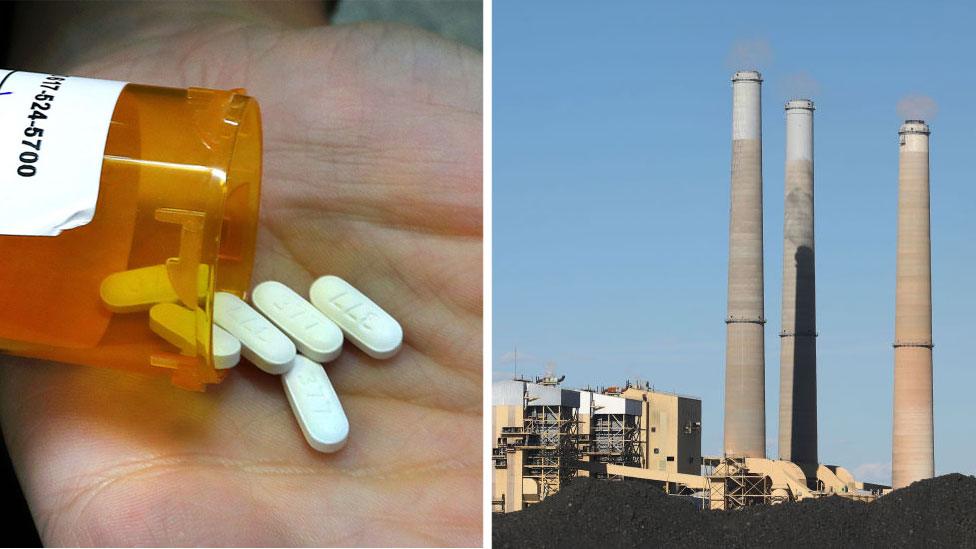US election: How left-wing is the Democratic field?
- Published
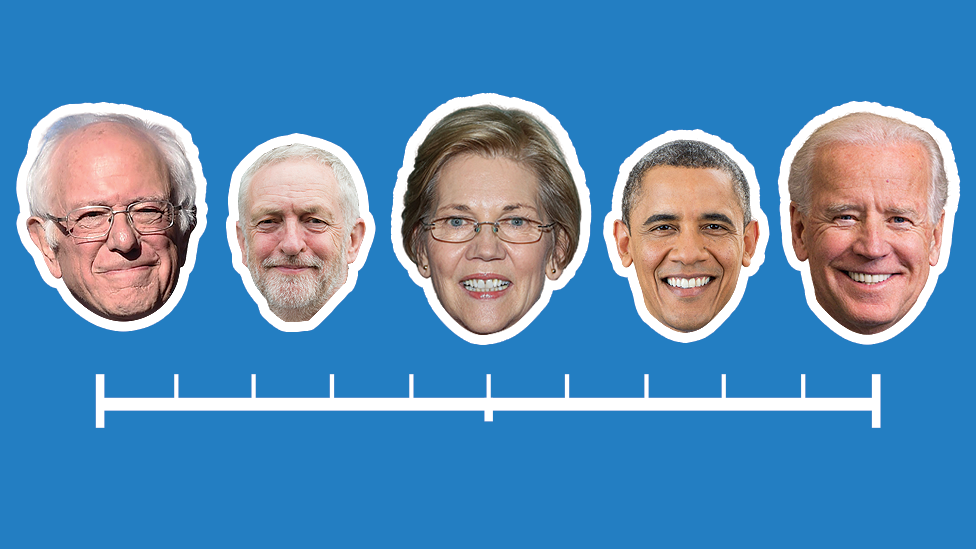
The US Democratic Party is undergoing something of an identity crisis as it debates what direction to take ahead of the looming battle with President Donald Trump, a Republican, in November.
A tension between the so-called progressive wing of the party, led by Bernie Sanders and Elizabeth Warren, and the moderates like Joe Biden, Amy Klobuchar and Pete Buttigieg is dominating the primary elections.
Let's break it down by issues and compare the current field to figures in history and leading politicians from the UK.
When there's a Democratic nominee, we will reprise the format, adding Trump and world leaders.

Taxes
Taxes will always be a hot-button political issue in the US.
Back in 1992, Bill Clinton came into office with a fairly ambitious plan to reverse many of the Ronald Reagan-era tax cuts, but he still enacted a middle-class tax cut as part of his package. Democrats today are more aggressive.

Amy Klobuchar typifies the "moderate" position of wanting to raise corporate taxes, but not back to pre-Trump levels, and ensure that all billionaires pay at least 30% of their income in taxes. Michael Bloomberg has called for a 5% surtax on income above $5m - part of a plan he says will raise $5tn.
The real action comes with those seeking funding for their more ambitious plans, however. Elizabeth Warren has proposed a tax on all wealth above $50m - property, stock, everything - that would bankroll her education and healthcare programmes.
Across the pond, Margaret Thatcher set the baseline with her conservative, tax-and-regulation-slashing agenda.

Healthcare
Healthcare, the top issue for many Democratic voters, has been the source of spirited debate for all the 2020 candidates.

The biggest differences are between candidates like Pete Buttigieg, who endorses a government-run health insurance option to compete with private companies, and Sanders, who wants a government-run system to replace all private insurance. Warren originally endorsed the Sanders plan, but she's recently called for a more incremental path to getting there.
Obama considered a "public option" (now endorsed by Buttigieg) when pushing his Affordable Care Act through Congress in 2010, but it was considered a political bridge too far. Now, all the Democrats are on the other side of that particular river - although none are advocating an entirely government-run healthcare system like the UK's NHS, which even Conservative Prime Minster Boris Johnson wholeheartedly defends.

Immigration
Former President Barack Obama strongly backed immigration reform, including giving many undocumented US residents a pathway to citizenship, but he also increased enforcement of US immigration laws and increased deportation of new entrants and those with criminal records. His Vice-President, Joe Biden, has defended the Obama record and promises to restore his policies after Donald Trump's hard-line changes.

Former candidate Julian Castro was the first to propose repealing a law that made entering the US without proper documentation a criminal offence. Castro has since endorsed Warren, and she has adopted his proposal, as well as backing the elimination of private immigration detention centres and the movement by "sanctuary cities" to refuse to co-operate with federal immigration officials.
On the other side of the spectrum sits Nigel Farage, the godfather of Brexit and an ardent foe of the EU's immigration policies.

Foreign policy
One of the more spirited exchanges during the January Democratic debate in Iowa was between Joe Biden and Bernie Sanders over how engaged the US should be in the Middle East and the necessity of maintaining US military forces overseas.
The divide between Biden, the former chair of the Senate foreign relations committee, and Sanders, a long-time peace activist, stretches back decades - and was on stark display during Biden's support and Sanders' opposition to the 2002 Iraq War authorising resolution.

Tulsi Gabbard was not on that debate stage, but she is without a doubt the most outspoken non-interventionist in the Democratic field, as the Iraq War veteran regularly rails against what she says are never-ending US "regime change" wars.
Gabbard is still arguably to the right of Labour leader Jeremy Corbyn, however.
Meanwhile, the position of President Lyndon Baines Johnson - the architect of the Vietnam War - on this chart is a reminder that Democrats could be considerably more hawkish than they are now.

Trade
There have always been anti-free-trade currents in the Democratic party, but in 1993 Bill Clinton effectively overcame their opposition to push through the North America Free Trade Agreement (Nafta).

The party has moved rather decisively to the left on trade in recent years, however, with Elizabeth Warren opposing the Trans-Pacific Partnership, among other recent trade deals. Bernie Sanders has gone one step further, opposing Trump's Nafta renegotiation, the US-Mexico-Canada agreement.
Michael Bloomberg is the free-trade outlier in the field, having called on the US to rejoin a renegotiated Trans-Pacific Partnership and vocally denounced Trump's trade war with China. He's still a far cry from British free-trader Tony Blair, who backed the UK's EU membership, wanted to offer membership to Turkey and advocated replacing the British pound with the euro.

Environment
Former Vice-President and Democratic presidential candidate Al Gore was once the face of the Democratic Party's environmentalist movement. When he ran for president in 2000, he backed a plan that included using tax credits, market incentives and government technological investments to address climate change and other threats to the globe.

While ambitious at the time, it pales in comparison to the Green New Deal, which all the Democratic candidates have agreed to, at least as a framework to build on. Bloomberg and Tom Steyer, in particular, have made addressing climate change a top issue. While Biden hasn't spent as much time touting his environmental plan, it is - on paper - at least as extensive.

Read more on the candidates

A family split over Bernie Sanders
- Published3 February 2020
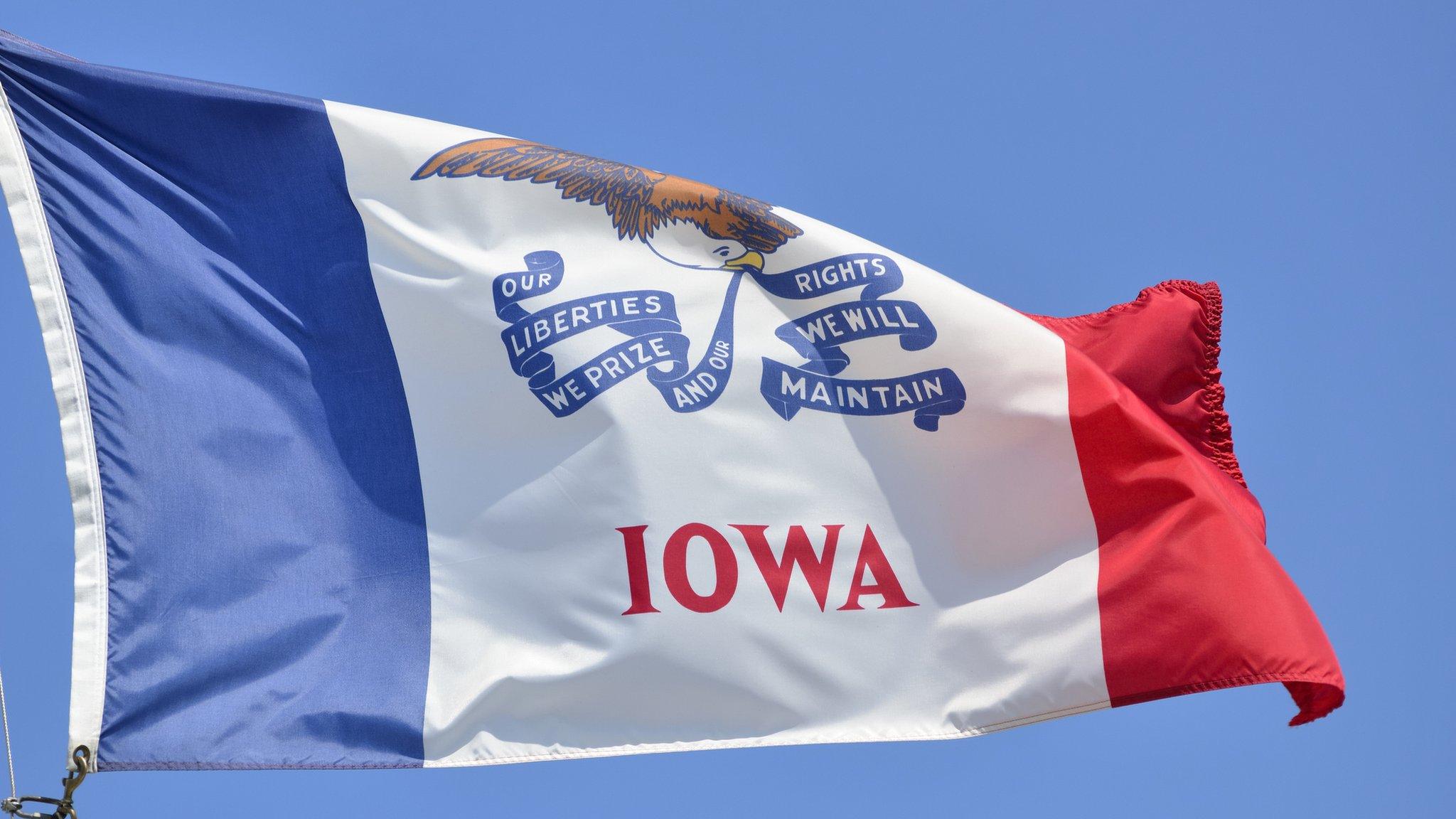
- Published5 March 2020
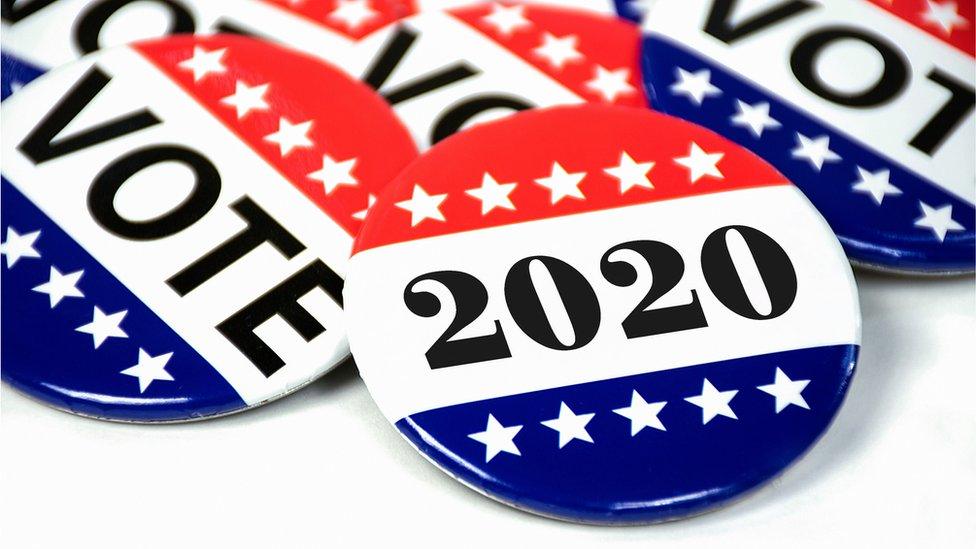
- Published19 May 2020
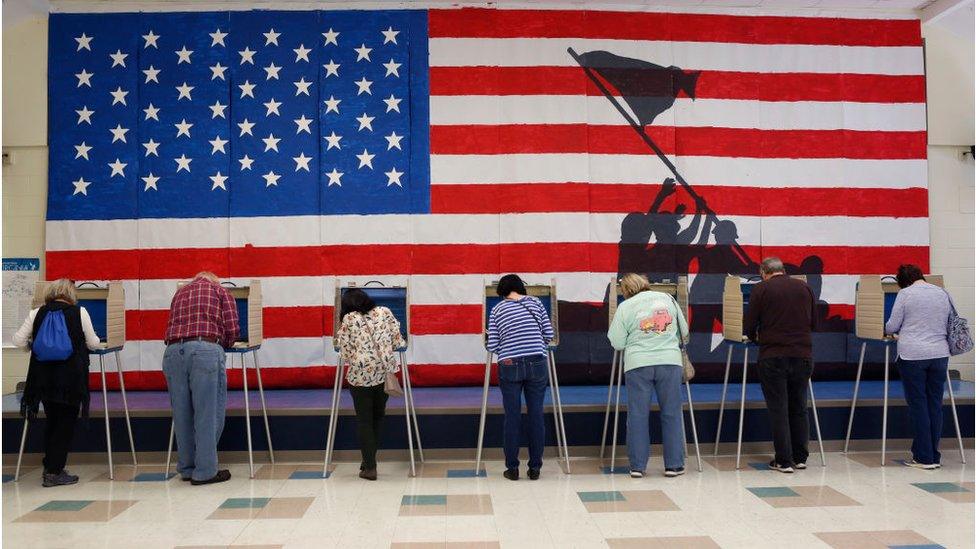
- Published9 December 2019
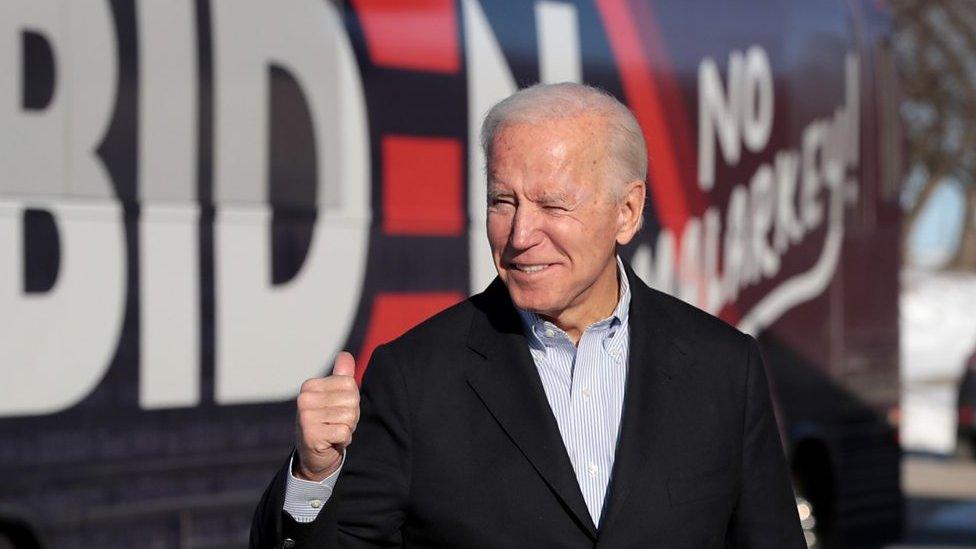
- Published2 March 2020
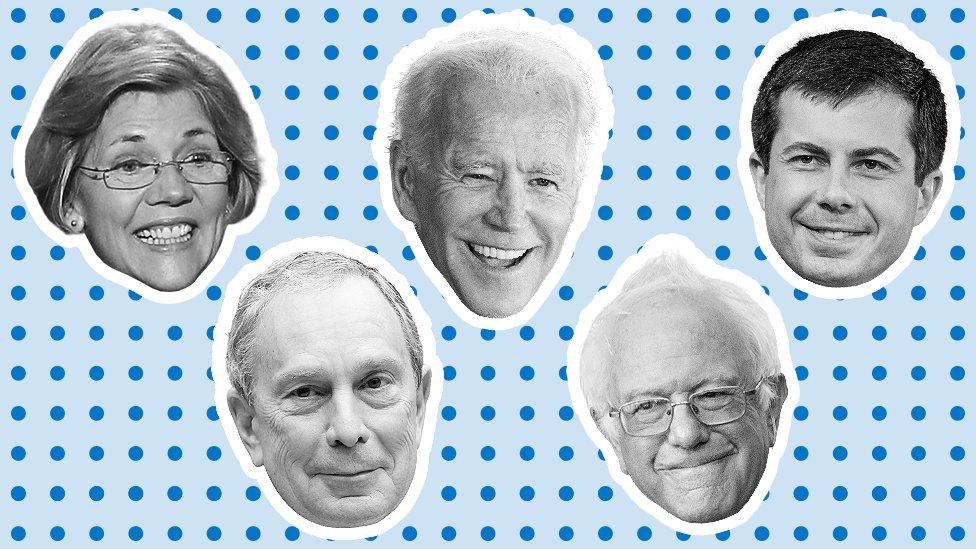
- Published17 January 2020
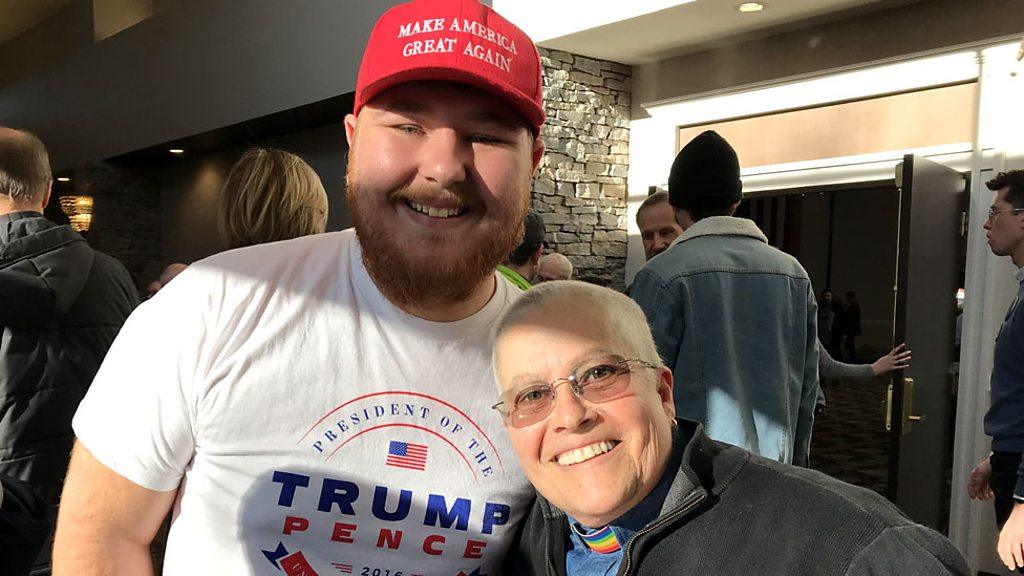
- Published4 February 2020
